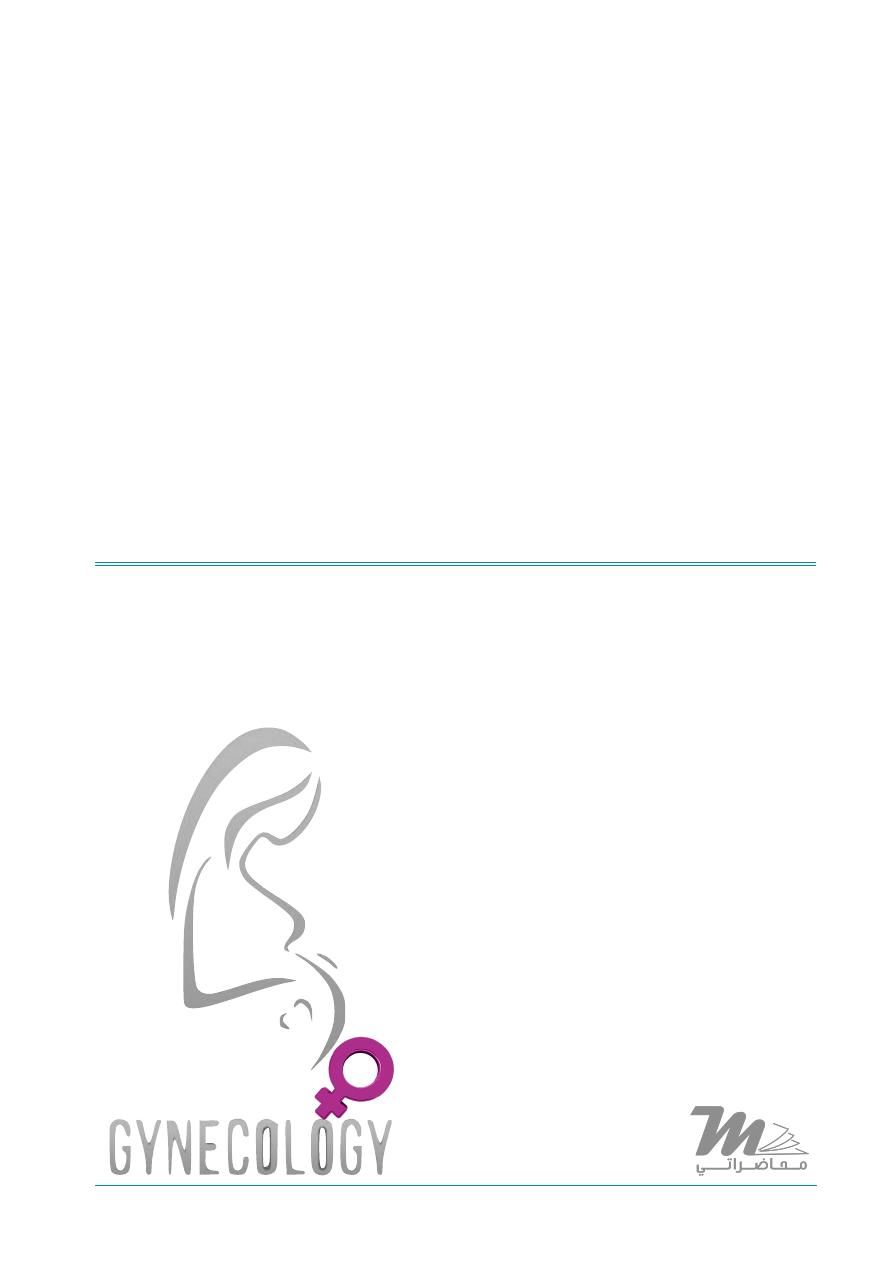
AFTER MID
TOTAL LEC: 35
Gynaecology
Dr. Ikhlas
Lec 35 - Hormones in Gynaecology
DR. IKHLAS - LEC 6
مكتب املدينة


Hormones In Gynecology
Note: this Lecture has been edited by the students, the original lecture is
found on the website (www.muhadharaty.com)
Hormonal replacement therapy
Estrogen
:
There is general agreement that hormonal replacement therapy for post
menopausal patients should be started with the minimum effective
dose of estradiol and increased only if it is needed.
Exogenous estrogen is problematic since it is associated with increased
risk of breast cancer development, heart disease and venous
thromboembolism. It has been also implicated in increasing the risk of
ovarian tumors because of the improper ovulation induction programs.
It can be given systemically or locally.
The minimum effective doses of currently available systemic estrogen
are: (* the doses are not for memorization)
o 0.3 - 0.625 mg oral conjugated equine estrogen (Premarine)
o 1 mg oral micronized estradiol
o 25-50 mcg transdermal estradiol
o 25-50 mg implant
o 150 mcg nasal estradiol
o 50 mcg estradiol ring
NOTE: an exception to this low dose rule, are women with premature
ovarian failure who need HIGH dose of estrogen. Such high doses can
also be used to induce puberty in certain diseases when it is required.

Routes of administration:
- Oral route: which is partially metabolized by the liver and do not fully
restore the natural ratio of estradiol to estrone which is 2:1.
- Transdermal patch: used twice or once weekly.
- It can also be administered transnasally in a pulsed manner. The nasal,
gel, and ring preparations should be combined with progestogen in
females with preserved uterus.
- Local (vaginal): recent vaginal creams contain preparations of estriol
(0.01% estriol cream and pessaries) and do not produce endometrial
hyperplasia.
- Premarine cream: can potentially cause endometrial hyperplasia and
should not be used for more than 3 months without progestogenic
opposition. Premarine cream increases the vascularity of the vagina,
hence it is used in the treatment of atrophic vaginitis. At the beginning,
tingling sensation and itching should be expected due to the resultant
vasodilatation. It must be taken for 5 days continuously and stopped for
the next 2 days for a period of 3 months.
Progestogen
Their aim is to protect the endometrium. It is generally accepted that a
female commencing HRT to start with a sequential regimen involving
taking estrogen continuously for the whole month while progesterone is
used for only 12 to 14 days).
Types:
• C19 - testosterone derived progestogen (Norethisterone,
Norgestrel , Levonorgestrel,)
• C21 - progestrone derived progestogen (Dydrogesrone, Medroxy
progesterone acetate, Cyclogest, Crinone gel)

NOTE: Norethisterone can regulate the menstrual cycle but it causes
hirsuitism, so it should not be given to patients with PCOS.
So a woman of reproductive age group complaining of irregular
cycle can be treated with Progesterone given either for the last two
weeks of the menstrual cycle meaning in the Luteal phase or from day 5
till day 21 of the menstrual cycle (which has a better effect). If bleeding
continues and the regimen was not beneficial we can increase the dose.
Persistent bleeding for more than 6 months warrants Investigations by
ultrasound and endometrial biopsy.
Side effects:
includes fluid retention and androgenic side effects such as acne,
hirsuitism and mood swings .
To minimize these side effects we can decrease the dose or duration of
the treatment. We can use intra uterine system or Drospirenone
(Spironolactone analogue that is found in YASMIN preparations ).
Tibolone (Livial):
( )ﻣﮭم
Works by mimicking the action of Sex hormones (has estrogenic,
progestogenic and Androgenic activity)
It helps in treatment of hot flushes and night sweats and prevents
osteoporosis. The dose is taken as 2.5 mg /day countinously.

Contraindication of HRT:
o Personal or family history of breast cancer.
o Hormone dependant tumors.
o Unexplained vaginal bleeding.
o Liver disease or renal disease.
o High level of TG or Cholesterol
o Thrombophilia
o Angina or MI
o Migraine
o Gallstonee
o Porphyria
o Patient with history of endometrial cancer
